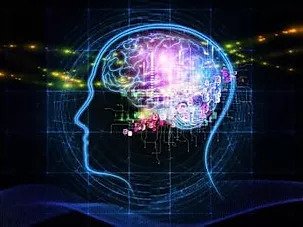Witnessing serious events such as military combat, natural disasters, terrorist incidents, serious accidents, or physical or sexual assault in adult or childhood can cause Post-traumatic syndrome. It’s not common for people who have experienced disturbing events to have flashbacks, nightmares or intrusive memories when something terrible happens. These difficulties may have an emotional impact on the way the survivor interacts with others.
Understanding the psychology behind your actions is a vital first step if you are considering a way to boost your personal growth. When you realize all the numerous habits in which our minds build observations, evaluate conclusions, and subconsciously function, you can see the psychological benefits start to form. It’s like a backstage pass to the way we work, and being behind the scenes, you have an even better understanding of what it takes to get ahead.
The Pratfall Effect
The mistake that fascinates charisma as an end result of the Pratfall Effect: Those who certainly not make inaccuracies are alleged as less likable than those who commit an embarrassing social mistake. Messing up draws a person closer to you, makes you more human. Perfection builds aloofness and an unappealing air of invulnerability. Those of us with imperfections win out every time.
The Pygmalion Effect
Also known as the Rosenthal Effect is the occurrence whereby higher expectations lead to an increase in performance. Studies of the Pygmalion effect have been challenging to conduct. Results show a constructive correlation among leader expectation and follower performance, but it is discussed that the studies are done in a peculiar, operating situation. Scientists argue that the perceptions a leader have of a follower cause the Pygmalion effect. The leader’s expectations are influenced by their discernment of the situation or the followers themselves. Perception and expectation may possibly be found in a similar part in the brain.
The Paradox of Choice
Psychologists term this the paradox of choice, and it defines how we turn out to be less content the more choices there are. Even if our crucial choice is clearly correct, when encountered with many choices, we are less likely to be pleased with what we choose. When you eat out, you often foretell your menu choice. When you buy a new car, you might toss and turn over the verdict. A wealth of selections makes finding satisfaction that much harder.
The Bystander Effect
The bystander effect, or bystander apathy, is a social psychological occurrence that denotes to cases in which persons do not compromise any means of help to a victim when other people are present. The likelihood of help is contrariwise related to the number of witnesses.
The Spotlight Effect
The “Spotlight Effect” refers to the propensity to think that more people notice something about you than they do. Dozens of studies in social psychology have supported this phenomenon. Being that one is repetitively in the center of one’s own world, a precise assessment of how much one is noticed by others has shown to be unusual.
The Focusing Effect
The focusing-effect is the points that people create choices on the basis of the most noticeable and separate evidence they have presented in their working memory, and for this purpose, other pieces of possibly valuable information are left out. So, the conclusion is only based on portions of the total amount of information that one has stowed.
Witnessing serious events such as military combat, natural disasters, terrorist incidents, serious accidents, or physical or sexual assault in adult or childhood can cause Post-traumatic syndrome.
It’s not common for people who have experienced disturbing events to have flashbacks, nightmares or intrusive memories when something terrible happens. These difficulties may have an emotional impact on the way the survivor interacts with others.
People having Post-Traumatic Stressed Disorder aka PTSD often experience three different kinds of symptoms:
- The first set of symptoms consisting of living through again with trauma in some way such as becoming distraught when confronted with a disturbing reminder or thinking about the trauma when you are trying to do something else.
- The second set of symptoms involves either staying away from places or people that jog your memory of the trauma, separate from other people, or numbness.
- The third set of symptoms consists of things such as feeling on guard, short-tempered or startling easily.
Overall a person who suffers from trauma may have certain common reactions. These reactions have an emotional impact on the people that surrounds a certain person. Family and friends then act in response to how the survivor is behaving; in turn, this may affect the person who went through the trauma. The support system is very important for trauma survivors; social support is one of the best things to keep in contrary to getting PTSD.
A lot of treatment approaches may be useful in dealing with relationship issues. Seek professional help today, visit www.MidCitiesPsychiatry.

